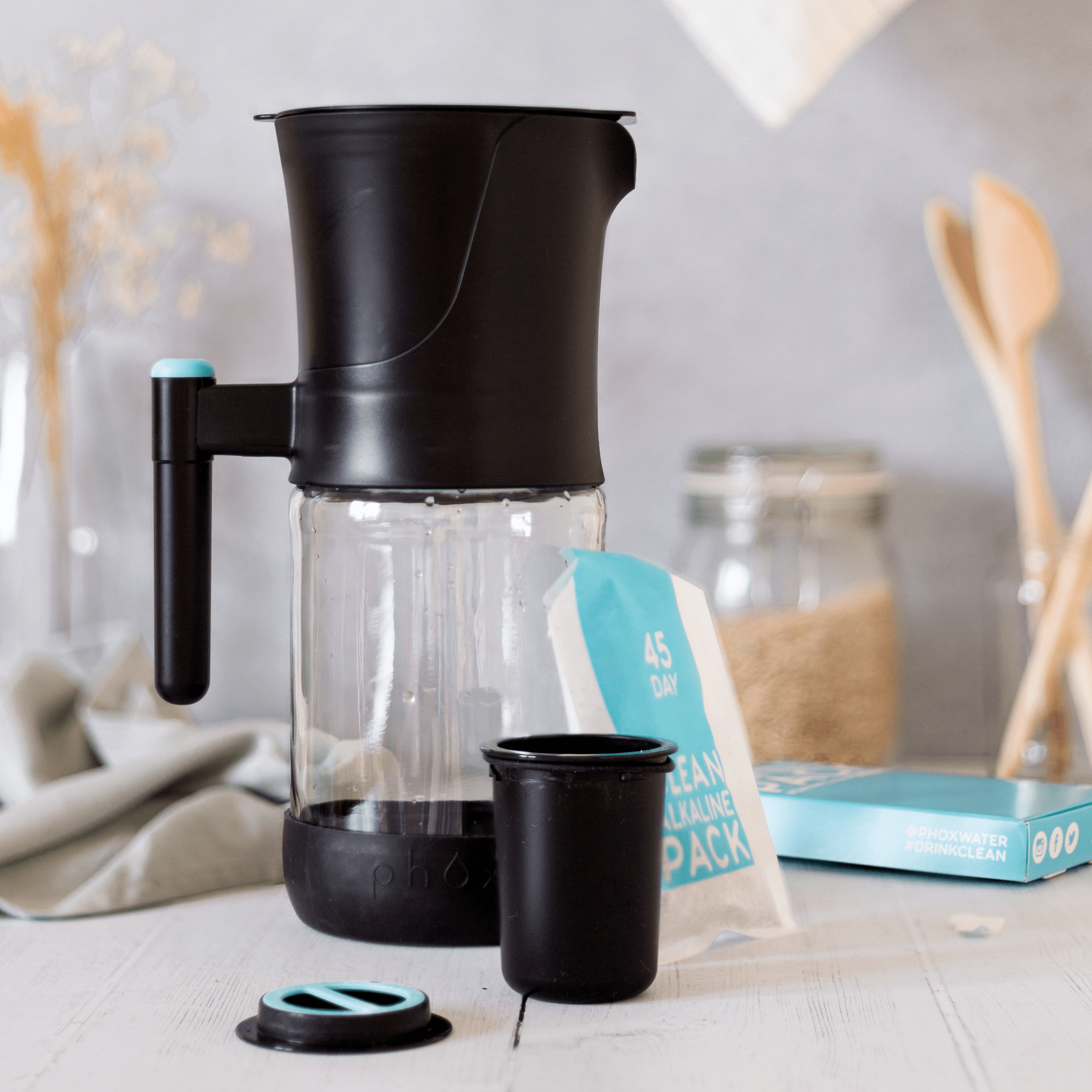What Are the Pros and Cons of Alkaline Water?
Alkaline water has gained significant attention for its potential health benefits, from improved hydration to soothing acid reflux. However, as with most health trends, it’s important to understand both the pros and cons. Let’s dive into what alkaline water is, its potential benefits, and its limitations to help you decide if it’s right for you.
What Is Alkaline Water?
Alkaline water is water with a pH level higher than 7.0, making it less acidic than standard tap water. The pH scale ranges from 0 to 14:
- 0-7: Acidic (e.g., lemon juice, coffee, wine)
- 7: Neutral (e.g., pure water)
- 7-14: Alkaline (e.g., seawater, baking soda)
Most tap water has a pH level between 7 and 7.5, while alkaline water typically falls between 8 and 10. Advocates claim that the higher pH, often combined with added minerals, provides unique health benefits.

The Pros of Alkaline Water
Here are some of the most widely recognized benefits of alkaline water:
1. Antioxidant Properties
Alkaline water contains strong antioxidants due to its decreased Oxidation Reduction Potential (ORP). Antioxidants neutralize free radicals, which can damage cells and contribute to ageing and disease.
2. Enhanced Hydration
Alkaline water may be absorbed more efficiently by the body, leading to improved hydration. A study in the Journal of the International Society of Sports Nutrition found that consuming alkaline water with a pH of 10 enhanced hydration levels and cardiorespiratory performance compared to regular water.
3. Soothes Acid Reflux
One of the most well-documented alkaline water benefits is its ability to neutralize stomach acid, offering relief from acid reflux or heartburn. Studies show that alkaline water can help maintain a healthier acid-base balance in the body, reducing discomfort caused by excess stomach acid.
4. Supports Bone Health
Studies suggest that alkaline water may support bone health by reducing bone resorption, a process where bones lose calcium and other minerals. For instance, research has shown that people consuming alkaline mineral water exhibit fewer markers of bone loss compared to those drinking acidic mineral water.
While this doesn’t replace the need for a balanced diet rich in calcium and vitamin D, it’s a potential bonus for long-term bone strength.

The Cons of Alkaline Water
While alkaline water offers many potential benefits, there are some limitations to consider:
1. Doesn’t Permanently Alter Stomach pH
Your stomach’s natural pH ranges from 1.5 to 3.5, which is necessary for digestion. Drinking alkaline water may temporarily neutralize stomach acid, but it cannot permanently change your stomach’s pH level.
2. Potential Cost
Some methods of producing alkaline water, such as ionizer machines, can be costly, with prices ranging from £750 to £2,000. However, more affordable options like the Phox alkaline water filter provide the same benefits for a fraction of the cost—just 2.5p per litre.
3. Potential Medication Interference
Alkaline water may interfere with the effectiveness of certain medications by altering how they are absorbed in the stomach. If you’re on any prescription drugs, consult your healthcare provider before making alkaline water a regular part of your routine.
Should You Try Alkaline Water?
Despite the ongoing debate, studies show that alkaline water can enhance hydration, improve physical performance, support bone health, and soothe acid reflux. Its benefits often outweigh its drawbacks, especially when consumed as part of a balanced diet.
If you’re curious, why not try it yourself? With Phox’s alkaline water filter, you can enjoy the benefits of alkaline water for just 2.5p per litre—far less than bottled alternatives.

Ready to Experience the Benefits of Alkaline Water?
There’s no one-size-fits-all answer to the pros and cons of alkaline water, but it’s clear that the benefits of improved hydration, bone health, and acid reflux relief make it worth considering.
Try a Phox Water Filter Jug with alkaline filter refills today and enjoy clean, refreshing alkaline water at home.


